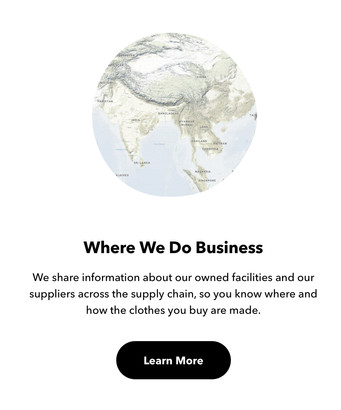Written by Amanda Conner, a World Changer Co. intern based in Panama City Beach, FL.. She's a yoga instructor, hydration specialist and mother. She enjoys anything that involves being in the ocean..

There’s a question that I’m sure you have thought about but haven’t given the time to fully research.
We see brands claim they are sustainable with certifications like “Fair Trade” or “Certified Organic” or even just labeled as “Sustainable.” But can just one of these labels/certifications classify a brand sustainable and ethical? And how do I know if a brand is really sustainable and ethical?
Let’s dive deep into this topic so you are fully educated to make the right brand choices. Here are the pros and cons of 6 popular certifications that brands use to label themselves as “sustainable or ethical”:

1. Fair Trade Certified:
PROS: This is a verification that ensures fair wages and safe working conditions for workers in the supply chain. It also promotes sustainable farming practices and prohibits the use of harmful chemicals.
CONS: While this certification focuses on social and economic aspects, it doesn’t specifically address environmental sustainability.

2. Oeko-Tex:
PROS: This certification guarantees that textiles and clothing are free from harmful substances and chemicals. It ensures that the products are safe for human health and the environment.
CONS: This doesn’t cover broader sustainability and ethical practices beyond chemical safety. This label means there could have been heaps of chemicals in the manufacturing process, but they were just removed before being put on store shelves.

3. Fair Wear Foundation:
PROS: This verifies that brands adhere to fair labor practices and provide safe working conditions for garment workers. It focuses on improving labor conditions and workers' rights.
CONS: It does not have specific criteria for environmental sustainability.

4. GOTS Certified Organic:
PROS: GOTS (Global Organic Textile Standard) certification ensures that textiles are made from organic fibers and produced in an environmentally and socially responsible manner. It covers both ecological and social criteria, including the use of organic materials, water and energy consumption, and fair treatment of workers. GOTS certification is one of the most comprehensive and best certifications for sustainable and ethical fashion.
CONS: This certification normally only pertains to the material of a finished product, so the product could have been sewn or pieced together in abusive working conditions. This is a great certification to be paired up with an ethical factory for manufacturing.

5. WFTO (World Fair Trade Organization):
PROS: This certification guarantees that a brand follows fair trade principles, including fair wages, safe working conditions, and sustainable production practices. It focuses on promoting social and economic development in marginalized communities.
CONS: It doesn’t have specific criteria for environmental sustainability.

6. B Corp:
PROS: B Corp certification is awarded to companies that meet standards of social and environmental performance, transparency, and accountability. It evaluates a company's overall impact on workers, communities, and the environment. Overall, it simply shows that a brand is doing a small effort.
CONS: Unfortunately, this is a perfect tool for greenwashing. People may feel better about buying a product with the B Corp stamp but B Corp is a point system, a company could get most their points for an A+ by having solar energy in their office, but still pay no attention to workers conditions. This also is not specifically focused on the fashion industry.
While each of these certifications plays a crucial role in promoting sustainability and ethical practices in the clothing industry, relying on just one certification is usually not enough to make a clothing brand truly sustainable. This is because each certification focuses on specific aspects of sustainability and ethical practices, and no single certification covers all the necessary criteria. That is, unless you consider being on the World Changer Co. website a certification <3
To be truly sustainable, a clothing brand should strive to meet multiple certifications and verifications that address different aspects of sustainability, including: environmental impact, fair labor practices, supply chain transparency, and community development. By combining multiple certifications, brands can ensure a more holistic approach to sustainability and ethical practices.
Here is an example of a GOOD sustainable and ethical brand:
They use a high proportion of lower-impact materials including recycled materials.
Uses low impact materials that help limit the chemicals, water, and wastewater in its supply chain.
Offers clothing recycling to consumers to help address end-of-life textile waste.
They use a medium proportion of bluesign certified fabrics.
Now here is an example of a not so good sustainable and ethical brand:
None of their supply chain is certified by crucial labour standards that help ensure worker health and safety, living wages, and other rights.
Received a score of 61-70% in the 2023 Fashion Transparency Index.
There's no evidence it ensures workers are paid living wages in its supply chain.
While YES, they do a lot of good things for the environment, they have no proof of certifications that their factory’s are in fact “ethical”.
A good rule of thumb, is if a company/brand really is proud of their factories being 100% ethical, they of course will be sharing about it on their website. So if you can’t find simple easy proof on their site, then the brand most likely is “greenwashing.”
A personal testimony, I am sponsored by a few athletic companies that claim they are sustainable and ethical. As this is important to me, I would browse their websites to “make sure.” From what I could see, and from what THEY wanted to show me, these brands looked and seemed fully ethical and sustainable. They would even send me their “eco friendly” outfits as they know where I stand. But the more I researched, the more I realized that these brands were not being 100% truthful and only showed me what I wanted to see. Now, don’t get me wrong, these brand are MUCH better than most, and do care about the environment, but they could do much better. (Especially being more high-end products and having a bigger budget than most other brands).
Basically, it is essential for all consumers to educate themselves about these certifications and understand their pro's and con's. While, yes, certifications provide valuable information, they should not be the sole basis for determining a brand's sustainability. Buyers should also consider other factors such as transparency, traceability, and the brand's overall commitment to sustainability. This was key for me. If they aren’t proud of it, they won’t share about it.
On a positive note, brands don’t have to show any certifications to be overall sustainable and ethical. Certifications can be way above a small brands’ budget, so a brand may opt to publicize exactly where their materials come from and keep their entire manufacturing process transparent in order to prove they are a social and environmentally responsible brand.
To wrap things up, the clothing industry's journey towards sustainability and ethical practices requires a multi-faceted approach. While certifications like Fair Trade Certified, GOTS Certified Organic, Oeko-Tex, and others play a crucial role, relying on just one certification is not enough. Brands should aim to meet multiple criteria and continuously improve their practices to create a truly sustainable and ethical fashion industry.
And lastly, remember that no brand is perfect, and achieving complete sustainability is an ongoing journey. But by considering multiple factors and certifications, buyers (like you and I) can make more informed choices and support brands that align with their values. Together, we can drive positive change in the fashion industry and create a more sustainable and ethical future!
Now that you understand certifications, what about materials? Read HERE to see what materials are good for the environment and which are greenwashing. If you don't have time for all this research, just shop from the World Changer Co. directories to be sure you are shopping from only ethical apparel brands.
Happy sustainable and ethical shopping :) -Amanda







Comments